|
The Golden Toad. The Zanzibar Leopard. The Pyrenean Ibex. The West African Black Rhino. The Javan Tiger. The Spix's Macaw. The Round Island Burrowing Boa. The Dutch Alcon Blue Butterfly. What do all these creatures have in common? They are all extinct and have gone extinct in the last forty years. Gone. Forever. Remembered only in pictures and never to grace the face of the Earth again. On the critically endangered list are the Mountain Gorilla, the Mayan Tiger, the Orangutan and the Sumatran Elephant, among so very many others. But stop and consider this for a minute: what would our world be like, our society, if dogs and cats went extinct? Yes, those dogs and cats. The companions with whom we share most of our waking moments and who, for most of us, are members of our families. What would our lives be like without the creatures who love us unconditionally on our worst of days and who provide us with companionship, comfort and humor? If you're telling yourself this would never, ever happen, think again and take the time to read Nathan and Jennifer Winograd's latest book: Welcome Home: An Animal Rights Perspective on Living with Dogs and Cats. I had the opportunity to read a galley copy of Welcome Home before it was published. I admit that I didn't know much about the content when I began. I knew it would become part of my animal welfare library simply due to the authors. To call this book both an education and an eye-opener in 111 pages would be a vast understatement. I found myself shaking my head as I read and found myself nodding my head as I read further. At the risk of oversimplifying the content of the book, it is a story of evil and a story of good. I have not shared all of the content here, of course. I'd like you to read the book and process it yourself both mentally and emotionally. The Evil. I fully realize that "evil" is a strong word. I find myself unable to come up with another word which fits. The Winograds open our eyes wide to the fact that there are forces at work in our country which take the view that domestication of dogs and cats has been to their detriment and they would essentially be better off dead. The evil part of the book focuses on two of those forces: PETA (People for the Ethical Treatment of Animals) and animal rights attorney and law professor Gary Francione. If you're like me, the proposition that anyone would advocate the extinction of dogs and cats is both shocking and disturbing. PETA is supposed to be an acronym for People for the Ethical Treatment of Animals. The reality, however, is that PETA does not stand for what most people think when we look past the acronym and look at the philosophies of the organization. PETA is not a champion for animals and animal welfare. At all. In spite of public perception about the motives of the organization, PETA destroys more than 96% of the animals it impounds and has fought to defend the “right” of shelters to kill millions more. I remember years ago when a contact of mine was helping a shelter in Kentucky which was full and told the public help was needed to keep animals from being destroyed. PETA sent her a fruit basket and congratulated her on the proposed destruction of animals. The head of the organization, Ingrid Newkirk, was interviewed years ago by 60 Minutes about her controversial will in which she provides disturbing directions for the disposition of her remains. I wish that the program had come with a content advisory so I would have been forewarned. Mr. Francione is a professor at Rutgers University and is also on the Board of Governors. He considers himself both an animal advocate and a No Kill advocate, yet he too seeks the extinction of both dogs and cats. He has stated that he would “not hesitate for a second” to cause the extinction of dogs and cats if it was within his power to do so. His argument is that sharing our homes with animals leads to such inevitable and severe suffering that they would be better of not existing at all. To most people who like animals, love animals or just consider themselves concerned with their well-being, those who advocate for the extinction of the dogs and cats we love are seemingly existing on another planet. How can an organization name itself as seeking ethical treatment of animals while at the same time killing them and promoting others to kill them? How can a self-proclaimed animal advocate seek extinction of dogs at cats as some bizarre means of saving them from the lives they live with us? There are no good answers other than to say that both have become so entrenched in their own world view that they no longer share any of the values shared by most Americans. So, why does any of this matter to you? The first reason this should matter to you is that money talks and big money talks loudly. PETA has millions of dollars and has shown the ability over a period of decades to seduce otherwise well-meaning people into supporting the PETA agenda because those people assume and presume they know what PETA stands for. I'm a huge fan of both Forrest Whitaker and Eddie Vetter, but I seriously doubt they have any idea that PETA would like nothing more than to cause our companion animals to go extinct while stealing dogs and cats from families to kill them. If you have not read about the case involving a family dog named, Maya, it serves as an example of what PETA really wants and stands for. The trial regarding the theft of Maya by PETA employees and her subsequent death is set for September 25th. The second reason this should matter to you is that not all who promote themselves as being animal advocates actually want to keep animals alive and you are well served to be able to separate those who share your values and those who do not. Particularly when some of those individuals hold law degrees and serve in positions where they educate our youth. 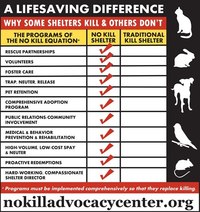 The Good. Luckily for all of us, Welcome Home does not stop with discussion about the disturbing components of the animal protection movement which seek to rid our lives and homes of companion animals in some Orwellian effort to save them from us. Welcome Home takes us one step further and helps us understand another perspective on how we live with animals to our mutual benefit. It is in this part of the book where we get back to some of what I consider the roots of Nathan's advocacy in written form as he explores the topics of shelter killing of animals, why spay and neuter is not the only solution to end the killing, the myth of pet overpopulation which continues to be used to justify killing in our nation's shelters which is both unethical and unnecessary and the No Kill Equation which can be used to save those animals. For me, Welcome Home could not be more timely. It has been ten years since Nathan published his first book about the history of the animal welfare movement and he first introduced us all to the genius that is the No Kill Equation. I can say without reservation that reading, Redemption: The Myth of Pet Overpopulation and the No Kill Revolution in America changed my life. At the time I read Redemption, I thought I was informed and educated on most animal welfare issues as an animal lover. Looking back now, I really just didn't have a clue. I read the book soon after it was published at a time when I was processing the unwelcome epiphany that animals die in our shelters not because we have too many of them or because something is wrong with them, but because we have been doing it for decades and it has become the status quo even though we are paying for it. Much has changed in the years since Redemption was published. Nathan and Jennifer have gone on to publish other books which occupy space in my animal welfare library: Irreconcilable Differences: The Battle for the Heart & Soul of America's Animal Shelters, Friendly Fire and All American Vegan: Veganism for the Rest of Us. Add to that list the documentary film based on Nathan's first book and which I consider compulsory viewing: Redemption: The No Kill Revolution in America. An incredible amount of progress has been made across the country to stop the needless killing of healthy and treatable animals in our nation's animal shelters in the last 20 years, due in large part to the values of the American public toward dogs and cats and the fact that people don't want their money used to end lives when those same lives can be saved. Welcome Home helps educate us on both the evil and the good so that we can recognize them for what they are, protect the animals we love from those who would seek to destroy them and make better collective choices for the benefit of us all. Whether you consider yourself an animal advocate, an animal lover or you are just concerned about the power wielded by influence and big money, you must read Welcome Home. If we are ever to overcome the forces in our country which work against our core values related to companion animals, we must be prepared to defend those values while making the best possible decisions for the animals. And if we are ever to bring and end to the killing of healthy and treatable animals in our nation's so-called “shelters,” we must all learn about the programs and services which are working across the country to save the lives of the dogs and cats with whom we share our lives, our homes, our beds and our hearts. (images courtesy of Nathan and Jennifer Winograd, Dana Kay Mattox Deutsch and Extinctanimals.org)
0 Comments
I had three separate conversations with contacts of mine last week regarding the phrase “no kill” and the word “euthanasia” as it relates to shelter animals. In one conversation, I was told that some organizations refuse to give grant money to any organization which refers to itself as “No Kill.” I use that phrase regularly and do so without hesitation. It is on the public radar and I think people are smart enough to understand that the phrase describes a culture. In another conversation, I was told about an animal welfare coalition in Colorado which does not allow members which use the word “kill” to describe what happens to shelter animals. The exact quote I was told was this: “We refuse to use the term ‘kill’ to describe agencies and their process of thoughtful euthanasia.” In the third conversation, I was told about a shelter director in the state where I live who uses the phrase “necessary euthanasia.” She boasts a “euthanasia” rate of about 8% when, in fact, it is routinely around 30-40% and was higher than 50% in May alone. More than half the animals entering her facility that month did not make it out alive even though hers is a non-profit organization with a huge donor and support base. I have often wondered if donors know what they are paying for. Enough already. The dictionary definition of euthanasia is easily understood: the act or practice of killing or permitting the death of hopelessly sick or injured individuals (such as persons or domestic animals) in a relatively painless way for reasons of mercy. I’m not sure exactly when it was in the history of animal sheltering in America that we first began to use the word “euthanasia” to describe the destruction of healthy and treatable animals for space or convenience in our tax-funded animal shelters. Regardless of when this practice began, it has continued to present day in earnest and it does not serve us well as a society. Words and phrases have common meanings which help us all communicate and do so fairly effectively. When we take those words and we distort them to excuse or condone our behavior, we are doing a disservice to our values and to how we function collectively. The fact that healthy and treatable animals are destroyed in our nation’s shelters, along with animals who are injured or irremediably ill, and we dare call it all euthanasia should be a source of public shame for us all. We consider ours a progressive society. We talk about dogs being “man’s best friend.” We hold our values about companion animals above those of other cultures, as if we are somehow more evolved. We are not. And we should be ashamed of ourselves. When we destroy perfectly savable animals in our shelters, we are doing just that. We are killing them. We are destroying them. We are not euthanizing them. The act has nothing at all to do with mercy and everything to do with complacency. Our history has shown that the destruction of these animals is not necessary. It continues to take place using our money whether we are aware of it or not. And it just doesn't have to be that way. Killing animals is a choice. Saving lives is a choice. The growing number of communities walking away from the status quo and functioning in new ways more consistent with our values in our society prove daily what can happen with some bravery and getting educated on proven programs which work anywhere and everywhere they are implemented. Yesterday was the anniversary of the date when my husband and I had our beloved dog euthanized. July 4th of 2016 was one of the worst days of our lives and the very worst day of our 16 year relationship with our dog. No one gets to stay, human or animal. It was the circumstances of his passing due to some issues with receiving adequate and timely veterinary care which haunt us now, the memories of which we hope will become less vivid in time. Our dog had cancer which had moved to his brain and which was causing grand mal seizures which we believed could not be treated or stopped. We euthanized him for reasons of mercy and to keep him from suffering. 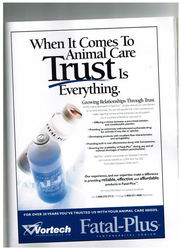 When healthy and treatable animals die in animal shelters, whether they are funded by tax dollars or donations or both, it is not euthanasia. To compare that process with the heart wrenching decision made by loving animal caregivers and families every day to prevent suffering is to devalue the lives of all of the animals in our society. If your beloved dog or cat ended up in an animal shelter due to no fault of your own and was destroyed, would you call it “euthanasia”? No. You would not. If we are ever to reform our broken animal sheltering system in America, we have to speak plainly and not sugar coat what is taking place using our tax dollars and our donations. Only then can we reach the rest of the public which does not realize what is taking place in their communities using their money and their donations and only then will we be able to reform our broken animal sheltering system to make the killing stop. If you don’t know what takes place at the animal shelter in your community using your tax dollars, ask for statistics and learn for yourself what is really happening. No matter what they are calling it. |
AuthorI am an animal welfare advocate. My goal is to help people understand some basic issues related to companion animals in America. Awareness leads to education leads to action leads to change. Archives
July 2024
Categories
All
image courtesy of Terrah Johnson
|

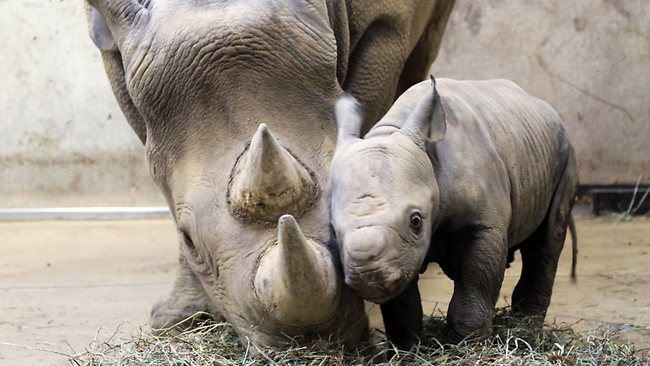
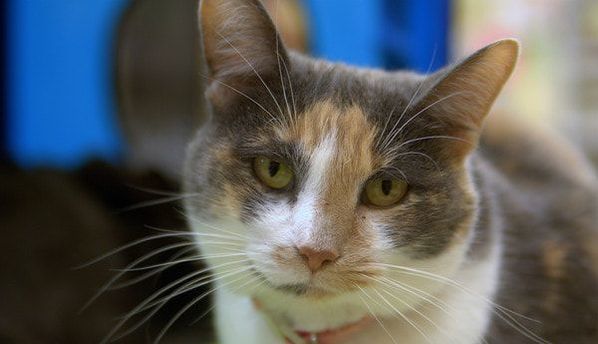




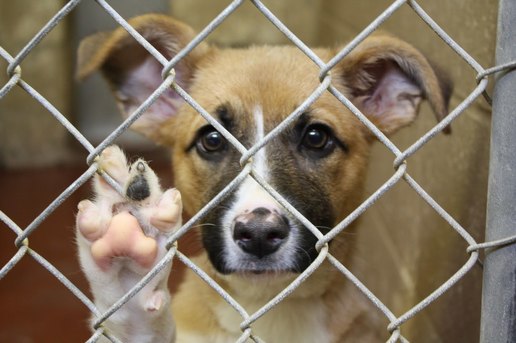
 RSS Feed
RSS Feed